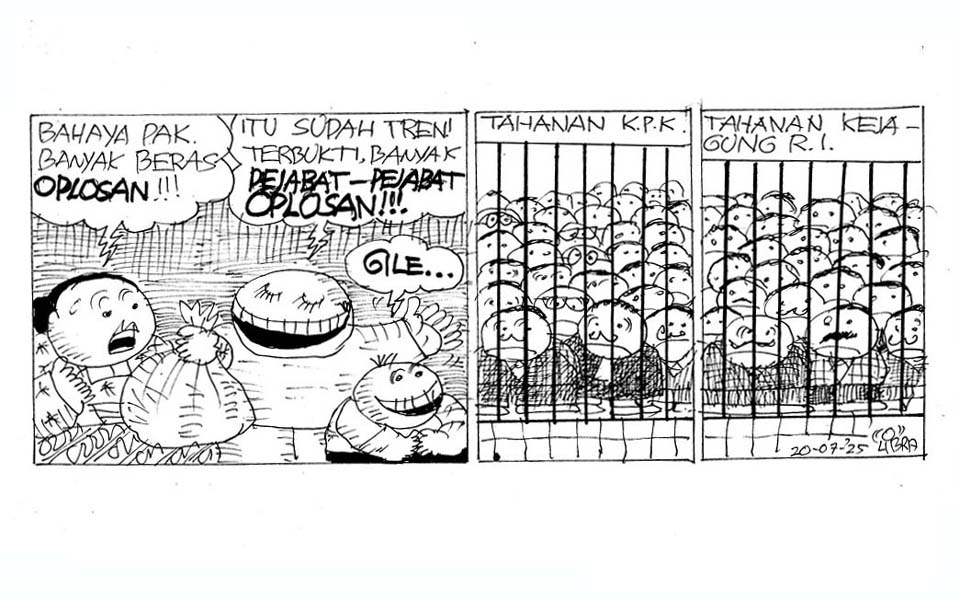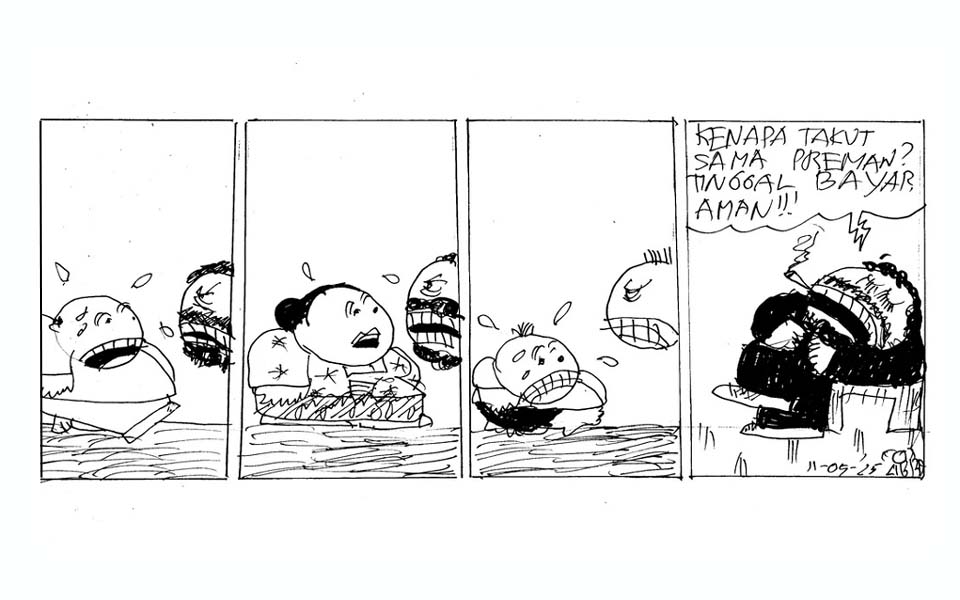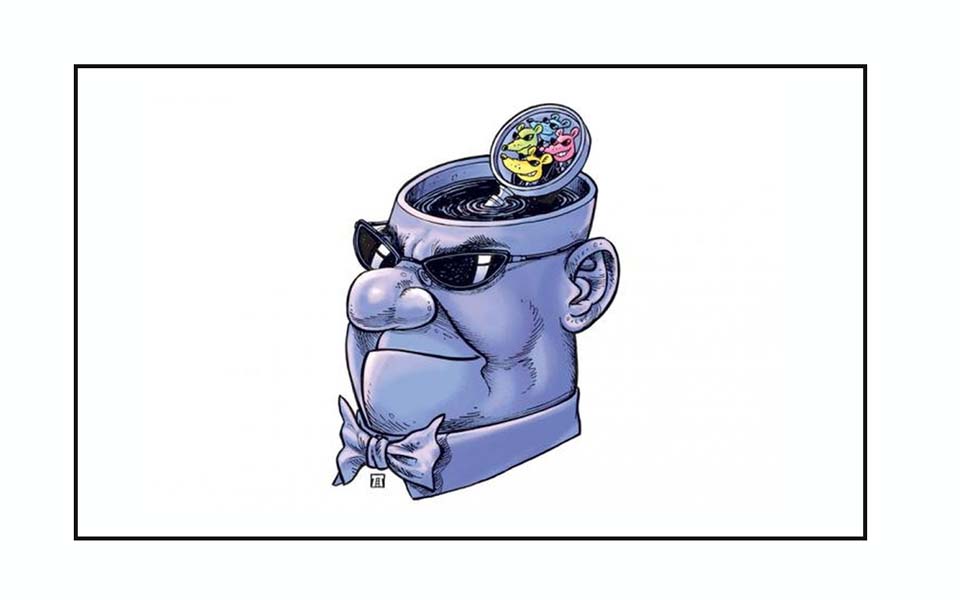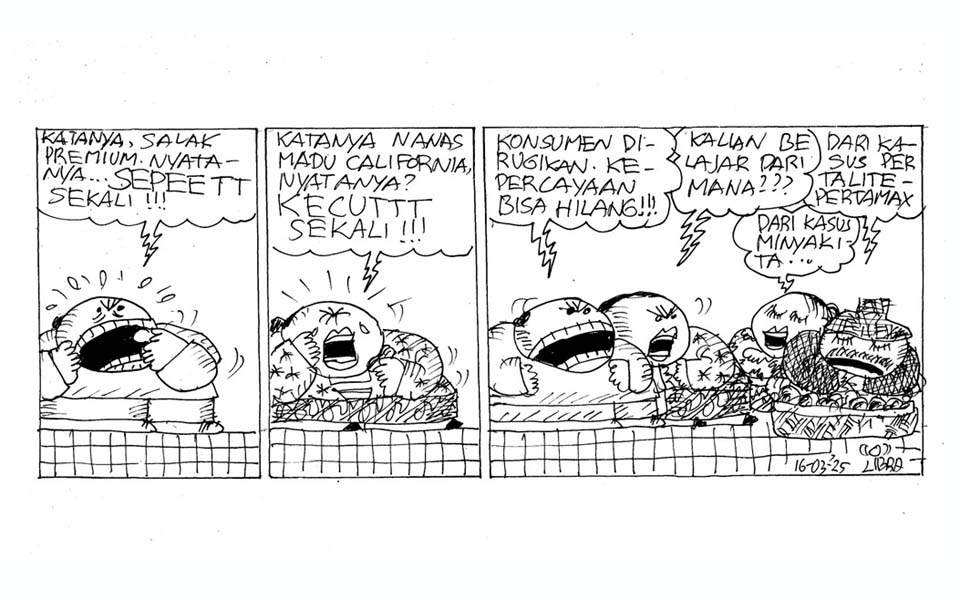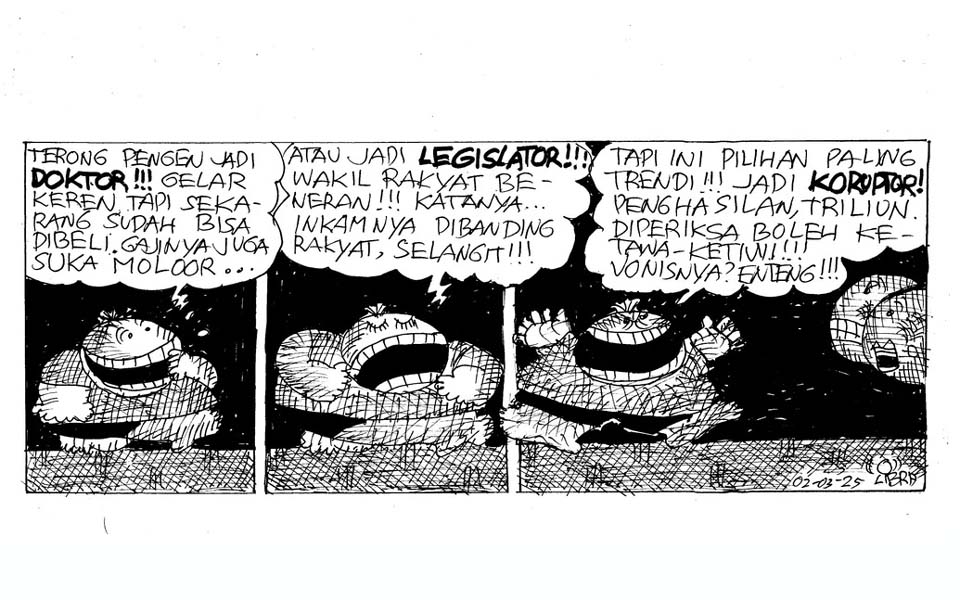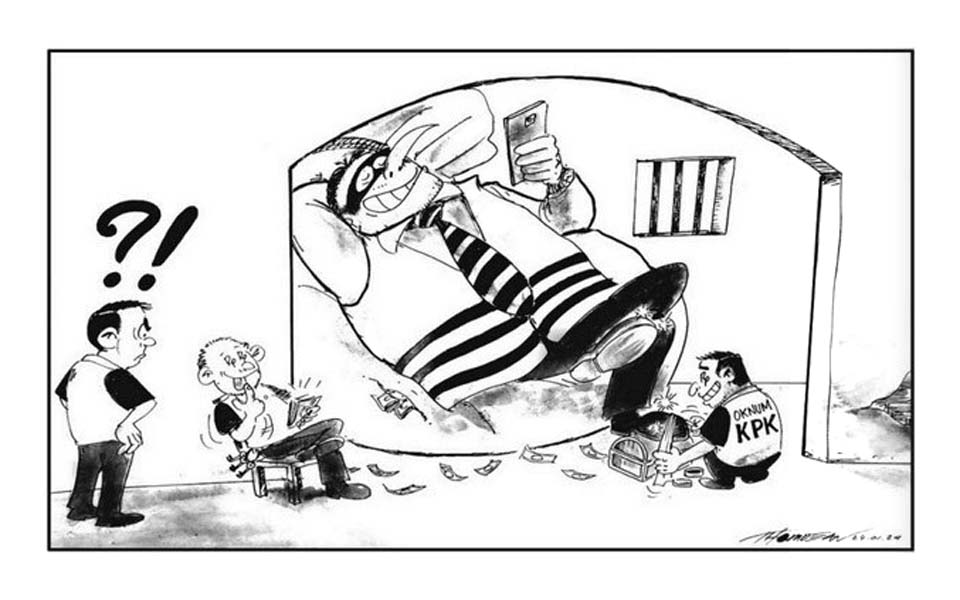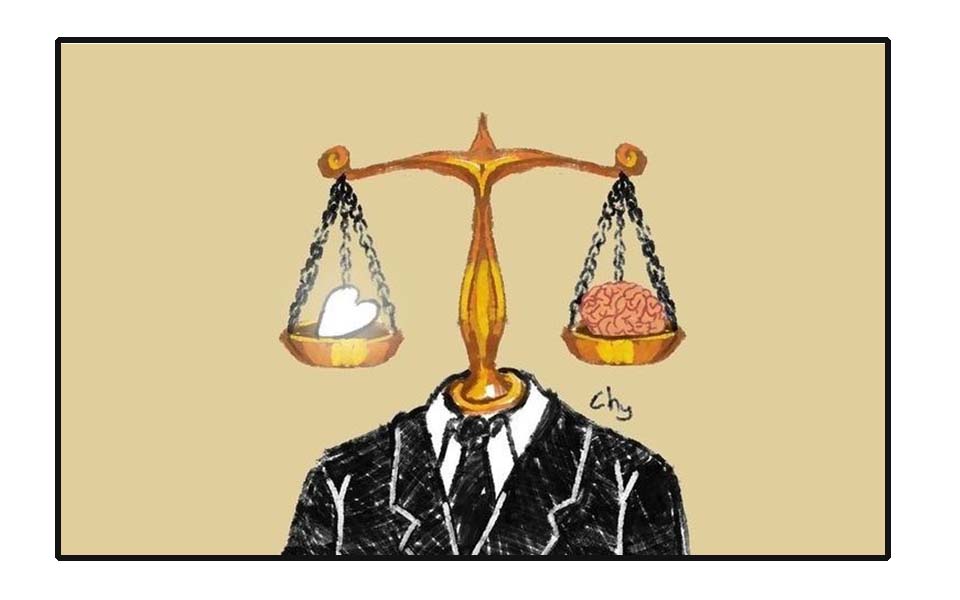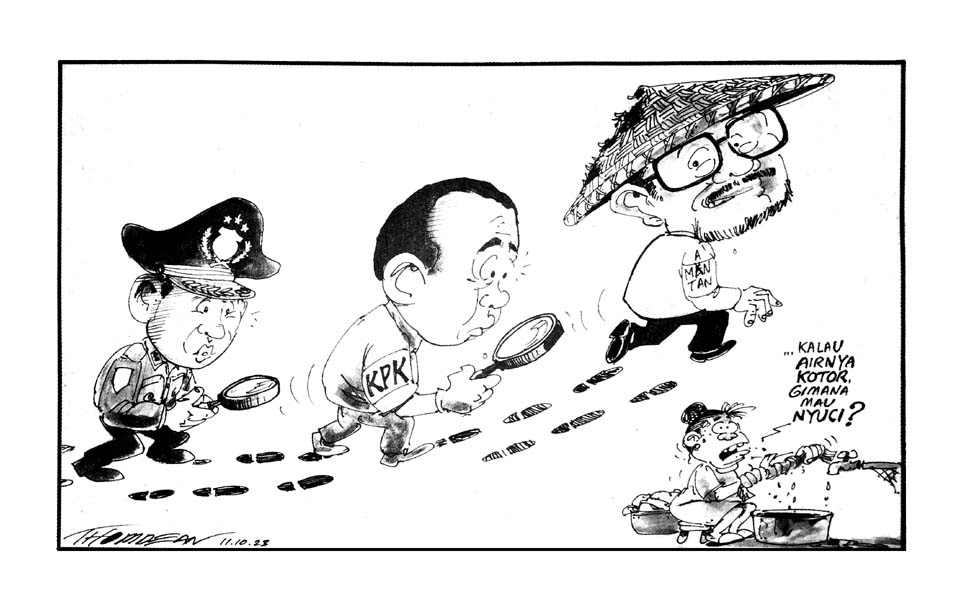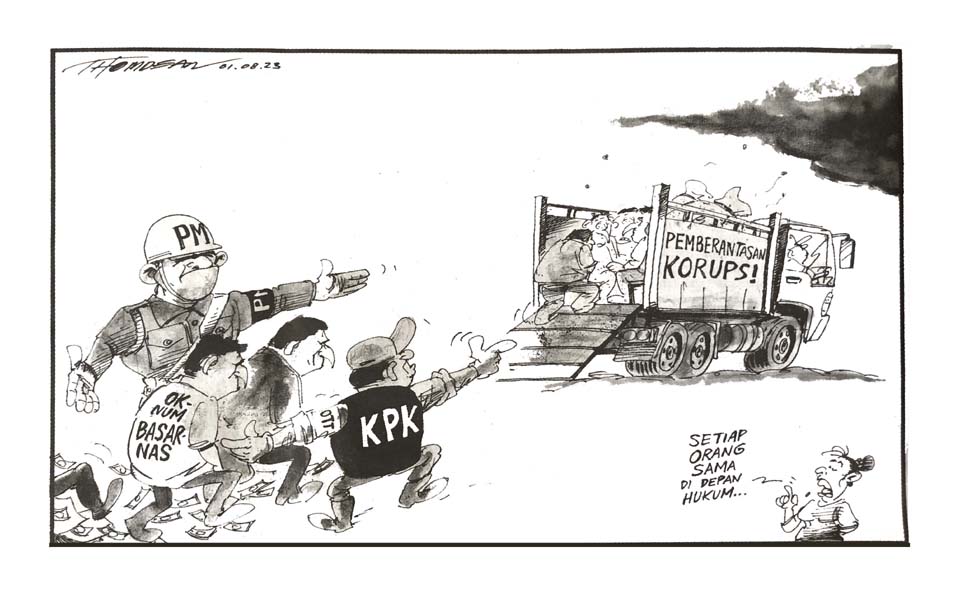
Woman: Everyone is equal before the law...
Truck reads "Corruption eradication", shirt reads "Rouge Basarnas officer", helmet reads "Military police".
The Indonesian Military's (TNI) resistance toward the arrest of a high-ranking officer and his aide by the Corruption Eradication Commission (KPK) over an alleged graft case at the National Search and Rescue Agency (Basarnas) has reignited a debate over the military's long-standing culture of impunity.
KPK investigators named five suspects in the case, including Basarnas head Air Vice Marshal Henri Alfiandi and the agency's administrative coordinator Lieutenant Colonel Afri Budi Cahyanto. The remaining suspects were businesspeople from three different companies.
Following a visit to the KPK by Military Police chief Air Rear Marshal Agung Handoko and several high-ranking military officers – all wearing military camouflage outfits – the KPK publically apologised saying that it had overstepped its authority by arresting and naming active military offices as suspects.
The TNI maintains that according to Law Number 31/1997 on military justice, they are solely responsible for handling criminal cases involving their personnel. The KPK has since continued its investigation into the civilian suspects while leaving the TNI suspects in the hands of the military police.
Civil society groups however have called on the KPK to continue with the investigation into Alfiandi and Cahyanto arguing that the KPK Law stipulates that it is authorised to coordinate corruption investigations regardless of whether those implicated are civilians or soldiers.
They point out that internal investigations by the TNI tend to preserve the institution's long-standing culture of impunity, as evident in some past cases in which the Military Court acquitted or gave lenient sentences to soldiers.
In 2017, for example, the KPK named a businessperson a suspect in a case of alleged corruption involving the procurement of the AgustaWestland (AW 101) helicopter, while the military police named five Air Force officers suspects in the case. None of the military personnel were indicted while the KPK successfully tried and convicted the businessperson in court.
The dispute has also shed light on the increasing number of military personnel that have been assigned to non-military posts under the administration of President Joko "Jokowi" Widodo.
This has been a cause for concern given the TNI's track record of interfering with domestic affairs and why one of the key demands of the 1998 reform movement was the abolition of the military's dual socio-political role.
-
TNI intervention in legal cases raises concerns over impunity, military authority. CNN Indonesia – August 8, 2023
- Watchdog slams KPK for apology, says TNI law being used as alibi for impunity. CNN Indonesia – July 29, 2023
[Based on an article in the August 7 Jakarta Post titled Analysis: KPK, TNI spat sheds light on military impunity.]





